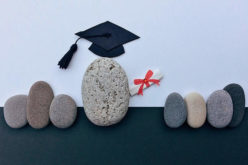This experience shapes your teaching style and builds confidence before you step into your own classroom, so keep reading to learn how to make the most of student teaching.
Build a Strong Relationship With Your Mentor
Your mentor teacher serves as your guide through the daily realities of education. Schedule regular check-ins to discuss lesson plans, classroom management strategies, and student progress. Ask specific questions about their teaching philosophy, and observe how they handle challenging situations.
During these conversations, take detailed notes, and reflect on their feedback. Your mentor has years of experience to share, so tap into their knowledge about everything from parent communication to administrative requirements.
Observe Everything
Spend your first few weeks observing classroom dynamics, student behaviors, and teaching techniques. Notice how your mentor teacher transitions between activities, manages disruptions, and differentiates instruction for various learning styles.
Once you start teaching lessons, incorporate these observations into your practice. While still staying true to your developing teaching style, try experimenting with different approaches to see what works and what doesn’t.
Create Engaging Activities
Students respond well to hands-on learning experiences that break up traditional lecture formats, so plan activities that connect to your curriculum and spark genuine interest.
For example, if you’re teaching physics or engineering concepts, you might want to plan a model rocket building activity. After choosing the right model rockets for your class, you’ll be able to demonstrate principles of motion, force, and aerodynamics. Whatever type of activity you choose, plan it carefully to ensure it aligns with learning objectives.
Document Your Growth and Challenges
Record successful lessons, challenging moments, and insights about student learning. Document strategies that work well, and note areas where you need improvement.
This reflection helps you identify patterns in your teaching and provides valuable material for future job interviews. Also, many schools ask student teachers to discuss their experiences and growth, so having concrete examples will strengthen your responses.
Network With School Staff and Administration
Introduce yourself to other teachers, staff members, and administrators. Whenever possible, attend faculty meetings, school events, and professional development sessions. These connections often lead to job opportunities and provide insights into different teaching approaches.
Additionally, building solid relationships with support staff, such as counselors, librarians, and learning support teachers, expands your understanding of how schools function as collaborative environments.
Prepare for Your Own Classroom
Use your student teaching time to collect resources, lesson plan templates, and classroom management ideas. With permission, take photos of bulletin board displays, organization systems, and learning centers to reference later.
During this experience, start building your own teaching portfolio. Include lesson plans, student work samples, and photos of classroom activities to showcase your developing skills.
Launch Your Teaching Career Strong
Student teaching provides the foundation for your entire teaching career. To truly make the most of your student teaching experience, approach each day as a learning opportunity.
Remember, the relationships you build and skills you develop during this time will serve you well as you transition into your own classroom and continue growing as an educator.
Image Credentials: By AnnaStills, #368034225
-------------------------------------------------------------------------------------------------------------
end of post idea
-------------------------------------------------------------------------------------------------------------
view home improvement ideas at our Photo Remodeling center
Helpful article? Leave us a quick comment below.
And please share this article within your social networks.










